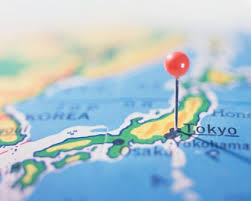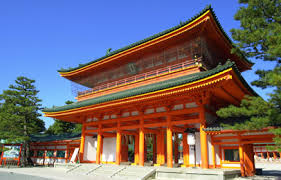An International Education in
Traditional Japan
The International University of Japan is a leading graduate school and one of Japan's oldest international universities. Tony McNicol traveled to Niigata Prefecture to talk to the University's staff and students.
The International University of Japan's motto is "Where the world gathers." And with one of the most cosmopolitan student bodies of any institution, that's not an idle boast. This year's intake of 157 students join 120 second year students and 29 exchange students on campus, between them hailing from some forty-six countries.
"It's like a mini United Nations," says Gretchen Shinoda, director of Career Counseling and Services at the University. One of IUJ's modes t claims to fame, she notes, is having held the Guinness World Record for the most nationalities in a sauna at the same time—fifty.
It might be a slight surprise then to learn that the University is not in central Tokyo, but in rural Niigata, ninety minutes by train from Tokyo and an area more famous for its prize-winning rice and splendid sake than education. When Nakayama Sohei founded the University in 1982 with a small group of other Japanese industrialists, he deliberately chose a location far from the bustle of Tokyo. The idea was for students from all around the world to live together, learn about each other, and build personal networks to aid their future careers. Then, as now, all classes were taught in English.
"It was a unique program then, and a big risk," says Shinoda. "We were the originalinternational university in Japan."
With relatively little around the campus except clean air and beautiful scenery, students certainly have plenty of time to get to know each other. In winter the region experiences some of the heaviest snowfall in Japan. On campus, covered walkways protect students from the snow that regularly piles above head height. "We are so small here that we are kind of a family," says Shinoda.
 The first intake was only 100 students. This year there are 306 graduate students including exchange students from many overseas universities, taught by thirty-seven faculty members, and assisted by thirty-eight other staff. The average age of students is twenty-eight. IUJ has two graduate schools, for International Relations and International Management. The Graduate School of International Management's two year MBA course is the only Japanese MBA program ranked in the Economist Intelligence Unit's top 100 business schools.
The first intake was only 100 students. This year there are 306 graduate students including exchange students from many overseas universities, taught by thirty-seven faculty members, and assisted by thirty-eight other staff. The average age of students is twenty-eight. IUJ has two graduate schools, for International Relations and International Management. The Graduate School of International Management's two year MBA course is the only Japanese MBA program ranked in the Economist Intelligence Unit's top 100 business schools.Working on the American system, students arrive in September and graduate twenty-one months later. Many students undertake a two-to three-month internship between their first and second year. IUJ graduates are highly sought after by employers in the financial and governmental sectors, education, IT, commerce and industry.
Mongolian student Duurenjargal Chimeddorj hopes her International Relations course will help her find work with an international organization involved in development work in her home country. "Due to the flexible but demanding curriculum of IUJ, I believe I will find the right job and contribute my knowledge and experience to my country's development after my graduation," she says.
IUJ is a private university accredited by the Japanese Ministry of Education, Culture, Sports Science and Technology. Other funding comes from industry, private donations, and scholarship support from foundations and private organizations. Many Japanese students are sponsored by employers to undertake mid-career training. The Indonesian and Malaysian governments also sponsor students, as does JICA (Japan International Cooperation Agency) and other organizations.
The University has been adversely affected by the economic downturn, however. Lehman Brothers was a major recruiter, and recruitment by the finance sector has suffered. In response, the University is now targeting other industries such as IT and mobile communications, says Shinoda.
The University's administrators are also working hard to attract a broad range of students, in particular women, for their MBA course. They aim to increase the number of female students from 30% to 45%. To that end, this year the University set up a mentor program with 135 alumni volunteers to support current students. IUJ also hopes to attract more former JET (Japan Exchange and Teaching Programme) teachers.
"We really feel we could be a bridge between their background and interests, and their careers," says Shinoda.
Many graduates go on to work for foreign owned companies in Japan.
"We want to get more exposure with non-Japanese companies in Japan. If companies are looking for foreigners who are developing their Japanese language skills and are committed to Japan, our students are ideal," Shinoda says. "We are hoping to stop being the best kept secret in Japan."
Tony McNicol is a freelance journalist and photographer based in Tokyo.


Tidak ada komentar:
Posting Komentar